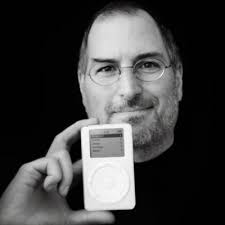Jobs had a long relationship with Barry Schuler, the CEO of the AOL unit of Time Warner,
乔布斯与时代华纳旗下的AOL的CEO巴里·舒勒是老交情,
and began to pick his brain about how to get the music labels into the proposed iTunes Store.
于是开始就如何把唱片品牌融入iTunes商店寻求他的建议。
"Piracy is flipping everyone's circuit breakers," Schuler told him.
舒勒告诉他:“盗版颠覆了所有人的认知。
"You should use the argument that because you have an integrated end-to-end service,
而能够与之抗衡的就是把iTunes做成一种端到端一体化的服务,
from iPods to the store, you can best protect how the music is used."
从iPod到商店,你就能最好地保护这些音乐。”
One day in March 2002, Schuler got a call from Jobs and decided to conference-in Vidich.
2002年3月的一天,舒勒接到了乔布斯的电话,并决定要维迪奇加入到这个电话会议中。

Jobs asked Vidich if he would come to Cupertino and bring the head of Warner Music, Roger Ames.
乔布斯问维迪奇,是否可以带上华纳音乐的总裁罗杰·艾姆斯一起来库比蒂诺开会。
This time Jobs was charming.
这一次乔布斯表现得很有亲和力。
Ames was a sardonic, fun, and clever Brit, a type (such as James Vincent and Jony Ive) that Jobs tended to like.
艾姆斯是个幽默风趣又聪明的英国人,属于乔布斯喜欢的类型(就像詹姆斯·文森特和乔尼·艾弗)。
So the Good Steve was on display.
所以“好脾气的史蒂夫”出现了。
At one point early in the meeting, Jobs even played the unusual role of diplomat.
在会议初期,乔布斯甚至还搞起了“外交”。
Ames and Eddy Cue, who ran iTunes for Apple,
当iTunes的主管埃迪·库埃和艾姆斯
got into an argument over why radio in England was not as vibrant as in the United States,
争论起为什么英国的广播没有美国的那么有活力时,
and Jobs stepped in, saying, "We know about tech, but we don't know as much about music, so let's not argue."
乔布斯打断了他们,说:“我们虽然懂技术,但不算懂音乐,所以不要争了。”


